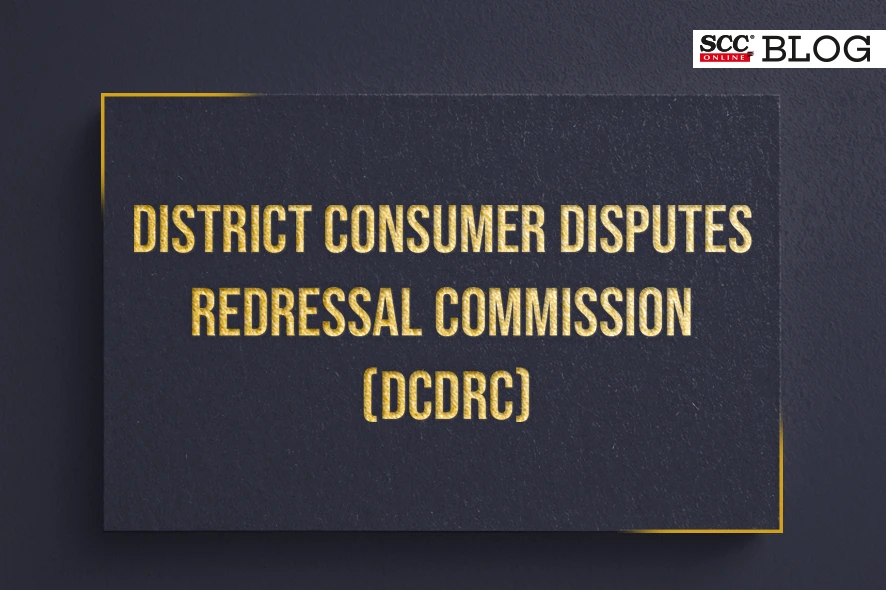District Consumer Disputes Redressal Commission (DCDRC), Ernakulam: While considering the instant complaint under Section 35 of Consumer Protection Act, 2019 filed by a lawyer wherein he had complained about deficient services provided by the authorised service centre for his HP laptop; the Bench of D.B. Binu, (President)* and V. Ramachandran and Sreevidhia T.N (Members) took note of the illegibility of original tax invoice and low quality of prints and pointed out that Kerala State Department of Consumer Affairs, in its directive No. 259/2019 had mandates that all government, public, and private entities provide bills that are both durable and legible. This order addressed the issue that bills printed on low-quality paper or with inferior ink can hinder customers from lodging complaints about services or products, as these bills are prone to damage or fading. The Department had also highlighted that issuing poorly printed bills may constitute ‘deficiency of service’ and an ‘unfair trade practice’.
The Commission further stated that in many countries, including India, consumer protection laws ensure the right to a durable and legible bill or receipt when making purchases, which includes clear and readable details of the transaction, durability against wear and tear, comprehensive itemization including prices and charges, clear indications of taxes and surcharges, information on return policies and warranties, recommendations for retention period, options for electronic receipts, and support from consumer protection authorities in case of disputes or issues.
Background: The complainant purchased an HP Laptop (model 15s-du2099TU) from Reliance Digital on 16-12-2020. The laptop was promoted as having excellent performance and various features, including a superior quality camera. However, within a month of purchase, the laptop started experiencing issues with the apostrophe key.
The complainant contacted Reliance Digital, who directed them to the Authorized Service Centre, Hewlett-Packard Global Sott Pvt. Ltd. The laptop was given for service, but instead of replacing the laptop, the service centre only replaced the keyboard under warranty. After a few months, the laptop’s performance deteriorated further, with issues like slow functioning, constant error messages; the camera also started projecting blurred images. Despite the complainant’s requests for a replacement, the service centre refused, citing a l4-day replacement policy.
The complainant argued that the laptop, purchased in December 2020, should be covered under the one-year warranty, and the refusal to replace it was illegal and that the opposite parties failed to understand the difference between “guarantee” and “warranty.” The laptop’s issues severely impacted the complainant’s work as a lawyer.
the complainant sought the following from the Commission to direct the Hewlett-Packard Global Soft PVT Ltd., to replace the laptop and ward a compensation of- Rs. 1,00,000 for the damages, including loss of work, inability to attend court procedures, and the cost of traveling to the service centre during office hours; Rs. 25,000 towards the cost of the proceedings and to refund the invoice value of the laptop to the complainant, along with damages of Rs. 1.00,000.
Commission’s Assessment: Perusing the facts and contentions of the complainant, the Commission pointed out that the opposite parties’ conscious failure to file their written versions despite having received the Commission’s notice to that effect amounts to an admission of the allegations levelled against them. Hence complainant stands unchallenged by the opposite parties.
It was further pointed out that the laptop exhibited issues shortly after its purchase. With problems becoming apparent within a month. The device demonstrated poor performance, particularly in its ability to save files. Despite initial repairs, the same issues resurfaced, suggesting an inherent manufacturing defect rendering the laptop unfit for use.
The Commission examined the receipts issued by the opposite parties and pointed out the poor quality of those receipts and enumerated several provisions such as Kerala State Department of Consumer Affairs. in its directive No. 259/2019, relevant provisions of the Consumer Protection Act, 2019, Rule 5 of the Consumer Protection (General) Rules, 2020 and several NCDRC precedents which have time and again highlighted that sellers should issue bills and receipts which are durable and legible which must include the clear details of the transaction.
The Commission found that evidence provided by the complainant substantiated the complainant’s contention of a defective product and poor service. The opposite parties failed to adequately address the issues with the laptop, which included malfunctioning keys, slow performance, and poor camera quality. The refusal to replace the laptop under warranty constituted deficiency in service and an unfair trade practice. The Commission also found that as a result of the negligence of the opposite parties, the complainant has endured significant inconvenience, mental distress, hardships, and financial losses.
Based on their assessment, the Commission decided that the complainant was entitled to relief as his work a s lawyer was severely hampered.
The District Commission directed the 1st opposite party to replace the laptop with a new unit of the identical model originally bought by the complainant without charging any additional amount. Alternatively, if replacing the laptop is not possible, then it was directed that the 1st opposite party pay the complainant with the full purchase price as per the invoice.
The Commission further directed the 2nd opposite party to issue legible and durable bills prepared quality printing ink on good quality papers.
Finally, it was directed that the opposite parties pay the complainant a total monetary compensation of Rs. 70,000 for deficient services and cost of proceedings.
[M.S. Sanjeev Kumar v. Hewlett-Packard Global Soft Pvt Ltd., CC No. 498/2021, decided on 27-11-23]
*Order by D.B. Binu, President
Advocates who appeared in this case :
Complainant- Adv. Jyothilekshmi, ‘Tritvam’


